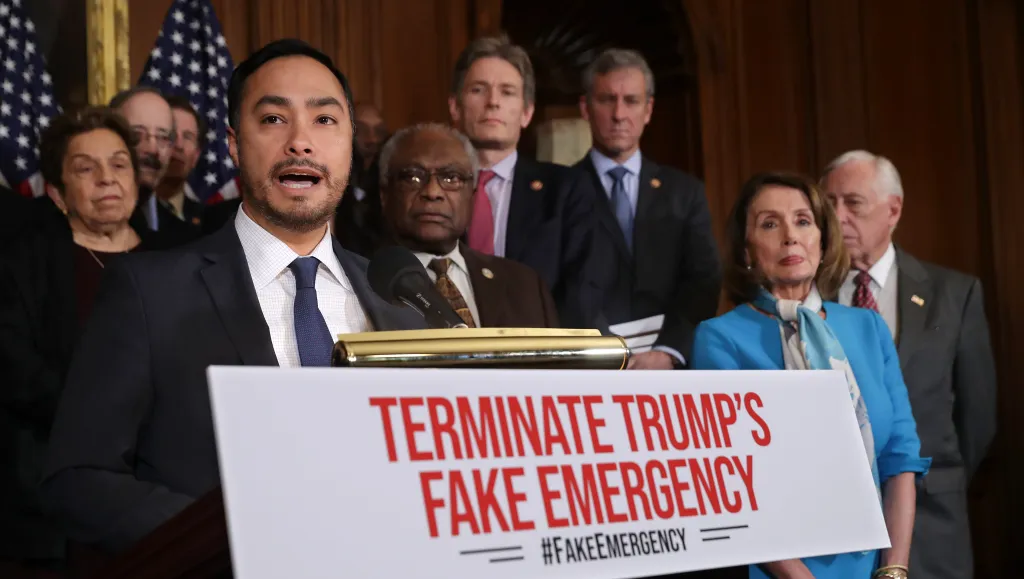Eliminating the Endangerment Finding Doesn’t Mean the Government Can’t Regulate Cars and Trucks
The Clean Air Act and Energy Independence and Security Act Still Give EPA, California, and NHTSA Significant Power
The withdrawal of EPA's endangerment finding is bad in many respects that I don't want to downplay and that many have already focused on. But it's also worth stressing that, should a president take office in 2029 who cares about climate and air pollution from cars and trucks, the federal government -- and California -- will continue to have a number of strong options to regulate. Pollution from cars and trucks doesn't only cause or contribute to climate change...
CONTINUE READINGWhat does BACA do? Part IV
Proposed CEQA ballot initiative changes permit approval procedures for all California laws, not just CEQA.
This is the fourth in a series of blog posts on the California Chamber of Commerce's proposed ballot initiative amending the California Environmental Quality Act (CEQA). The first blog post is here. The second blog post is here. The third blog post is here. The initiative also changes all permitting procedures for any state agency and any state law for any covered “essential” project. As a result, all agencies reviewing any permit applications for covered ...
CONTINUE READINGBring Back the Legislative Veto!!
Restoring Presidential-Congressional balance also restores the Constitution's vision of government -- and could pay environmental dividends
One line that stood out in the Supreme Court’s opinion in the tariff case, Learning Resources v Trump, was this one from Neil Gorsuch: Once this Court reads a doubtful statute as granting the executive branch a given power, that power may prove almost impossible for Congress to retrieve. Any President keen on his own authority (and, again, what President isn’t?) will have a strong incentive to veto legislation aimed at returning the power to Congress. Perhaps Cong...
CONTINUE READINGPolicies on the Bus Go Round and Round
The Drain is a weekly roundup of environmental and climate news from Legal Planet.
A year ago, the transportation manager of Northshore School District, outside of Seattle, wrote to EPA Administrator Lee Zeldin pleading with him to release frozen funding she was owed for new school buses. “We need your assistance to complete these projects and lift the financial burdens school districts are facing due to the delay in payments and potential pause in funding,” Sabrina Warren wrote in a letter dated Feb. 25. “The EPA School Bus Program has br...
CONTINUE READINGWhat does BACA do? Part III
Proposed CEQA ballot initiative would prevent changing environmental standards very early in the development process.
This is the third in a series of blog posts on the California Chamber of Commerce's proposed ballot initiative amending the California Environmental Quality Act (CEQA). The first blog post is here. The second blog post is here. The most sweeping change in the initiative is buried in the lead-in to an innocuously titled section, proposed new Section 21023 “Other Public Agency Actions for Essential Projects.” Here is the key text, in the beginning of 21023(a)...
CONTINUE READINGWhat does BACA do? Part II
Proposed CEQA ballot initiative would override all other state environmental law.
This is a second in a series of blog posts on the California Chamber of Commerce's proposed ballot initiative amending the California Environmental Quality Act (CEQA). The first blog post is here. The CEQA initiative proposed by the California Chamber of Commerce has some reassuring words about its nature and scope. First, proposed new Section 21014(a) states that the initiative “does not diminish the authority of any public agency to approve or disapprove an es...
CONTINUE READINGDissecting EPA’s Endangerment Repeal: Series Wrap-Up:
Here’s what you need to know to understand the upcoming legal battles.
Yesterday was the last of five Legal Planet posts on EPA’s repeal of the Endangerment Finding, which EPA based on legal arguments claiming that it has no power to regulate vehicle emissions of greenhouse gases. The series began with a quick overview of the issues. The remaining posts focus on three topics: (1) the reasons that EPA was right to issue the Endangerment Finding in the first place in 2009; (2) the legal precedents supporting the Endangerment Finding; and ...
CONTINUE READINGWhat does the Building an Affordable California Act do?
Proposed ballot initiative from Cal Chamber of Commerce to change CEQA could have broad implications.
The California Chamber of Commerce is currently collecting signatures for an initiative that would substantially change the California Environmental Quality Act (CEQA). Given the Chamber’s resources, I think it’s likely they will get enough signatures to qualify the initiative, which means either the legislature cuts a deal with the Chamber to enact legislation and take the initiative off the ballot, or it goes before the voters this fall. So a thorough evaluatio...
CONTINUE READINGTrump’s Ratepayer Protection Pledge: More BS on Electricity Prices
In his State of the Union address, President Trump announced a new “ratepayer protection pledge” from technology companies.
Last night, in his State of the Union address, President Trump announced a new “ratepayer protection pledge” from technology companies as his latest effort to respond to rising electricity prices across the country. In his brief remarks on the pledge, the President said that it “obligated” the technology companies to provide for their own power, including building their own plants, so that “no one’s prices” would go up—and in some cases would go dow...
CONTINUE READINGThe Tangled Web of the Boulder v. Suncor Cert Grant
Pass me some aspirin. Attorney General Rob Bonta might want some, too.
On Monday, the U.S. Supreme Court agreed to take up the Boulder v. Suncor Energy case, one of the growing set of state-law nuisance and consumer protection cases filed by states and municipalities against fossil fuel companies for harms from climate change. The Court will review the Colorado Supreme Court's decision to allow the case to proceed past a motion to dismiss. For a few reasons, we're in for a real ride on this one. In this case, Boulder County alleges tha...
CONTINUE READING









